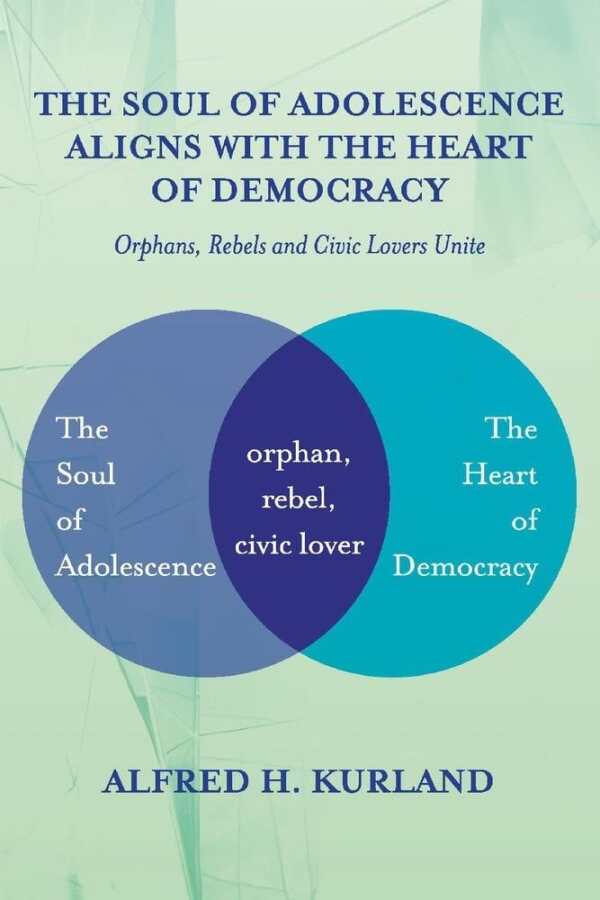The Soul of Adolescence Aligns with the Heart of Democracy
Orphans, Rebels and Civic Lovers Unite
The Soul of Adolescence Aligns with the Heart of Democracy is an ambitious text filled with suggestions for revitalizing democracy by recognizing the idealism and civic capacity of teenagers.
Part coming-of-age memoir and part pedagogical guidebook, Alfred H. Kurland’s mammoth theoretical text The Soul of Adolescence Aligns with the Heart of Democracy meditates on how young adults might be empowered to impact their communities.
The book introduces a robust theory of human rights and civil society to complement its presentation of contemporary young adults as the standard-bearers of twentieth-century progressivism. It decries “adultism”—or the disenfranchisement and dismissal of teenagers—as a destructive prejudice. And it advocates for encouraging teenagers to engage in politics, referencing Kurland’s personal mentoring experiences in New York City as examples of positive moves toward municipal engagement.
However, these ideas are undermined by the haphazard nature of their presentation. The book’s ideas are developed in a staggered, uneven way; they are not integrated into a unifying vision. The result is a text that reads like a collection of disparate viewpoints. For instance, the central notion that the soul of adolescence is made up of three archetypes (the orphan, the rebel, and the lover) is introduced late in the text. It is then applied to psychological, political, and philosophical perspectives and then is further redefined in terms of democracy to claim that teenagers have an intimate connection and role in democratic politics. At an individual level, these presentations are provocative, but they are not incorporated into an ordered theoretical system. The overall absence of distinct throughlines makes the text less than persuasive.
Further, the book’s four thematic chapters are each are book-length in and of themselves. The first two have the flavor of memoir, sharing Kurland’s anecdotal recollections to support their notions, as with his memories of residents of a Harlem neighborhood coming together during a riot. They also draw on personal experiences to highlight the destructive effects that authoritarian teachers have on children. Their snapshots of American social history are edifying, and their illustrations have a grounding effect. But the later portions of the text lack the same center; they draw on literature and theory extensively instead, to a degree that almost half of the book is made up of its lengthy endnotes and bibliography. In departing from Kurland’s personal experiences, the book becomes too murky and referential. Further, abstract-style summaries appear throughout chapters, often recording the same content more than once.
Combining personal memories with political theories and recommendations for activism, The Soul of Adolescence Aligns with the Heart of Democracy is an ambitious text filled with suggestions for revitalizing democracy by recognizing the idealism and civic capacity of teenagers.
Reviewed by
Willem Marx
Disclosure: This article is not an endorsement, but a review. The publisher of this book provided free copies of the book and paid a small fee to have their book reviewed by a professional reviewer. Foreword Reviews and Clarion Reviews make no guarantee that the publisher will receive a positive review. Foreword Magazine, Inc. is disclosing this in accordance with the Federal Trade Commission’s 16 CFR, Part 255.

